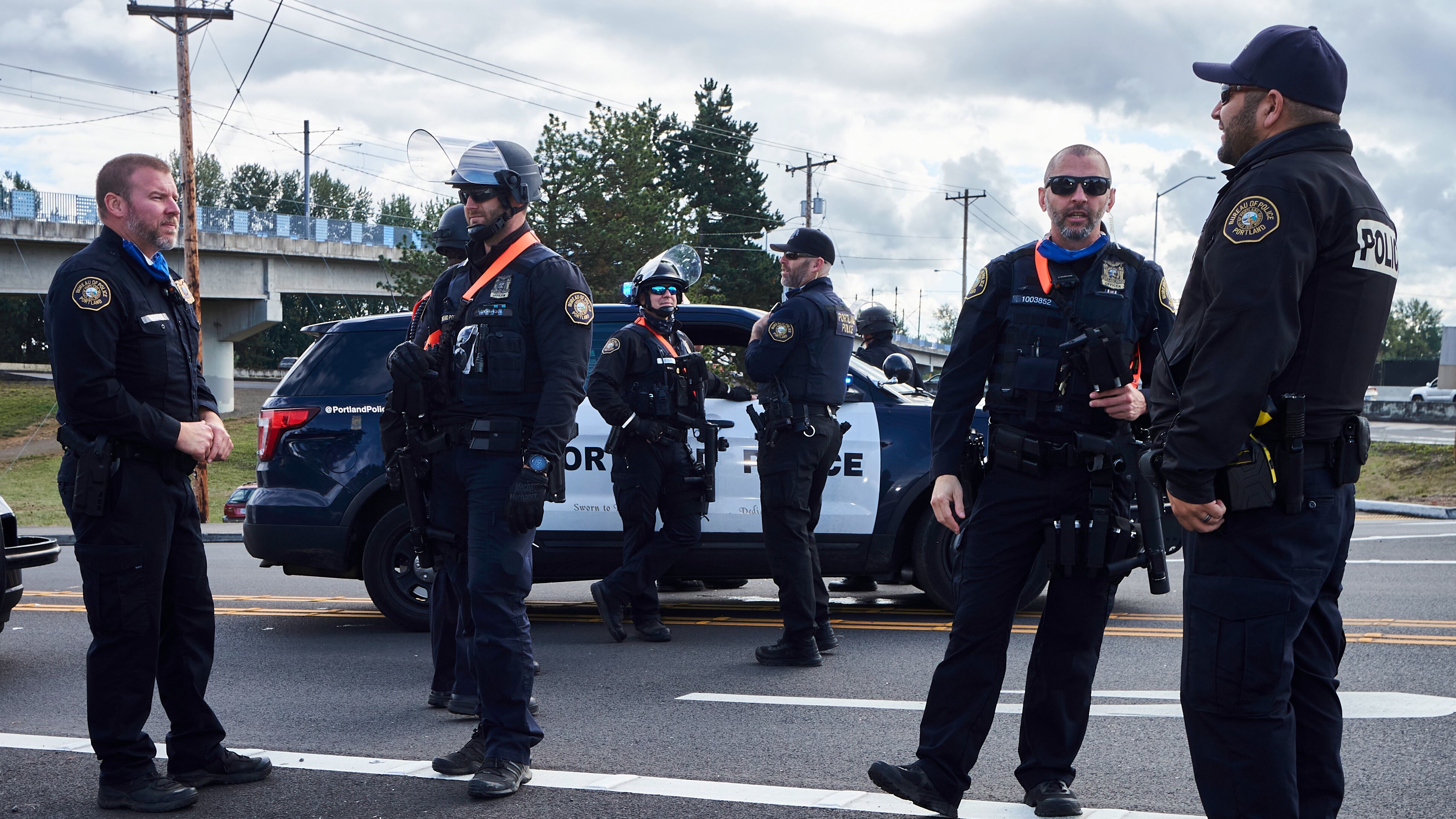A ballot initiative aimed for the November ballot seeks to overhaul the function and disciplinary powers of a future police oversight board that Portland voters approved in 2020.
The ballot initiative, crafted by backers that include the Portland Police Association and published today by the city auditor, seeks to alter the city’s future police oversight board, which is supposed to start work next year. In its current form, the board would have the authority to investigate police officers and discipline those who are found to have engaged in misconduct.
For the past two years, a 20-member volunteer commission that voters established in November 2020 with Measure 26-217, created a framework for the oversight board. They proposed a 33-member board that would have broad powers to investigate officers and discipline them if they’re found guilty of wrongdoing, including subpoena powers. The Portland City Council reviewed the commission’s plan last fall and made some tweaks, but in large part kept the primary powers of the future body intact.
The ballot initiative the police union and its backers have crafted would make the oversight board almost unrecognizable from the vision laid out by former Commissioner Jo Ann Hardesty and her allies in the 2020 ballot measure. Perhaps most importantly, the initiative would shift the ultimate power of disciplining officers away from the board—and give it to Portland’s police chief.
The accountability body would “provide to the Chief of Police full, fair, and objective investigation reports and recommended levels of discipline, if any, for complaints within its jurisdiction,” the initiative reads. “The Chief of Police shall have final and sole authority to impose discipline against Portland Police Bureau sworn employees.”
The ballot measure would also revise the purpose of the future accountability body by directing it to “review and recommend improvements to recruiting, retaining, and training efforts by the Portland Police Bureau” as well as “independently receive, investigate, and make disciplinary recommendations about certain complaints against Portland Police Bureau sworn employees.”
In other words, the initiative’s backers want the accountability body to help bolster Police Bureau ranks and strengthen retention—a different goal from that of the ballot measure Portland voters approved in 2020 in the months after George Floyd’s murder by Minneapolis police officers.
Supporters of Measure 26-217 reacted to the filing with distaste.
Candace Avalos, executive director of the climate justice nonprofit Verde and chair of the Citizen Review Committee to improve police accountability, said the initiative is a “clear attempt” to undo the entire point of the 2020 measure. “I look at the proposed amendments,” she added, “and they’re reverting us back exactly to what we have, which is a toothless, no-accountability system.”
The initiative would make several other important changes to the current plan: It removes the mandate that the accountability body and its staff receive a budget of no less than 5% of the Police Bureau’s, and it puts the budget in the hands of the City Council.
It would also change the makeup of the board. The Police Accountability Committee, which crafted the initial plan for the oversight body, proposed that board members should come from diverse backgrounds and that there should be members who have experienced substance abuse, racism and mental illness. The PAC also proposed that no former or present members of law enforcement could serve on the board, nor could anyone who had an immediate relative in law enforcement.
The ballot initiative would severely pare down those suggestions. Instead, it would mandate that the board seek members from “various professional backgrounds, and from different geographic areas within the City” and the initiative would allow current and former members of law enforcement to serve on the board.
Backers must collect 40,748 signatures to place it on the November ballot.
Correction: A previous version of this story stated that if the signatures are collected, the initiative would go to the Portland City Council, which has three options including allow it to go to the ballot as is, put a competing measure on the ballot, or make the measure into law themselves by a simple majority vote. That’s incorrect. Because this measure seeks to change the charter, if the signatures are collected, it will go straight to the ballot. WW regrets the error.

